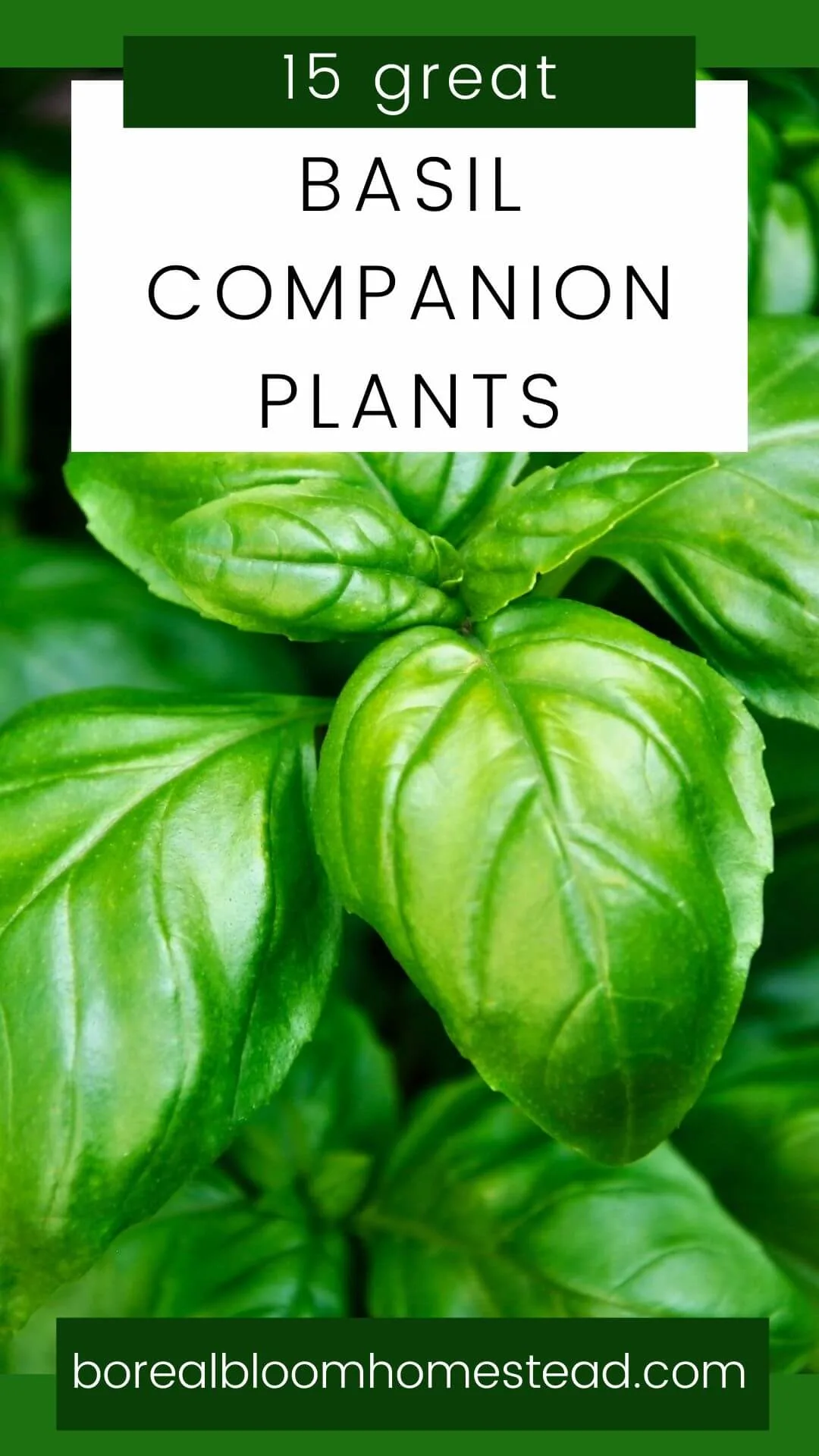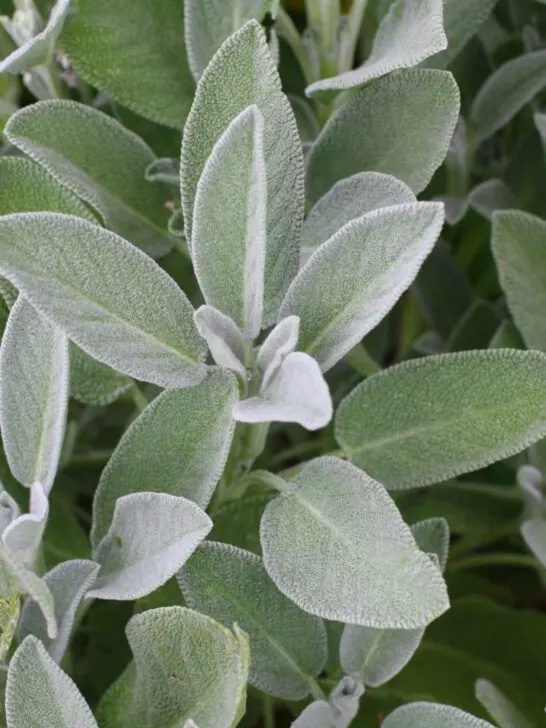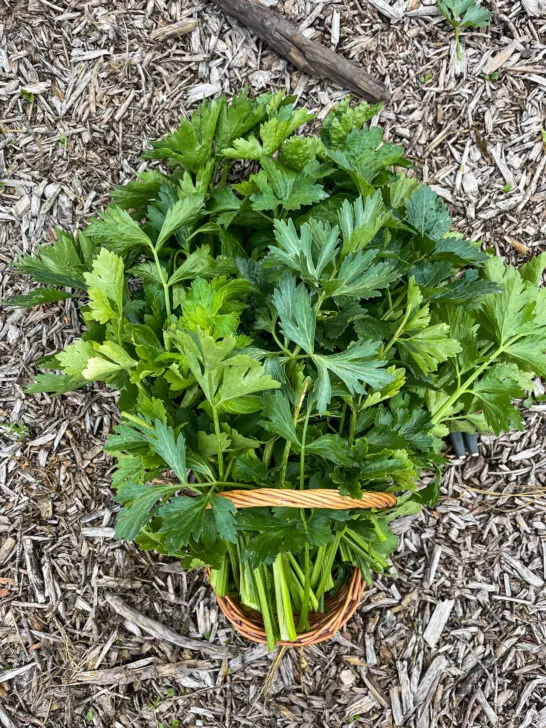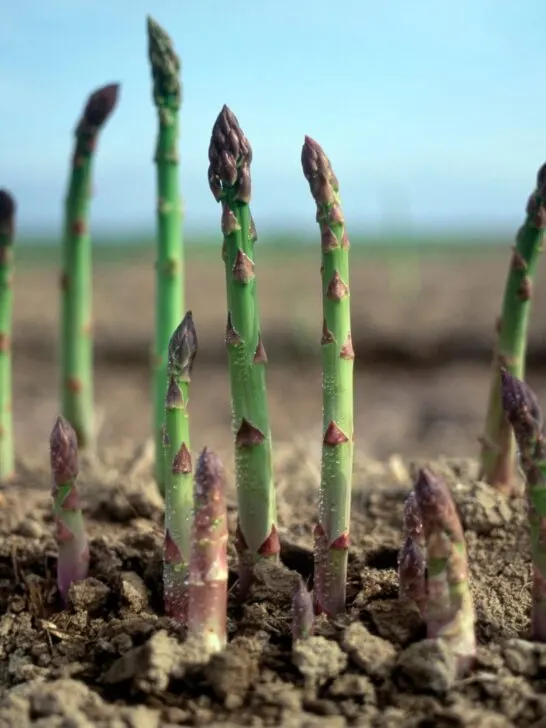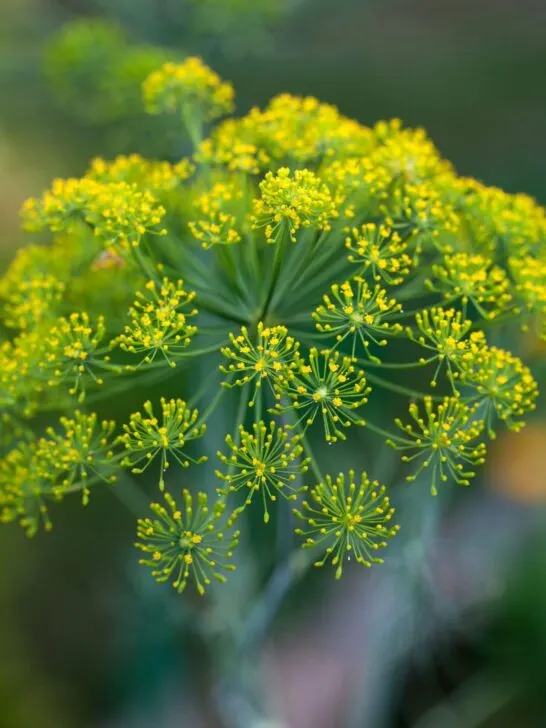Basil companion plants can help improve the yield, health, and pest resistance of your garden crop!
Basil, Ocimum basilicum, is a tender annual herb belonging to the Lamiaceae family, along with mint. It has a sweet smell and flavor and is a popular addition to many dishes. The leaves of the basil plant range from green to purple, depending on the variety, and come in several sizes.
Fresh basil can be used to make pesto sauces for pasta dishes or added to salads for extra flavor. Dried basil is also commonly used as a seasoning for soups and stews. It can even be used as part of a flavorful herbal tea blend.
Whether you’re using it to add flavor to your favorite dish or just simply enjoy its benefits as a companion plant, basil is a herb worth incorporating into your home garden.
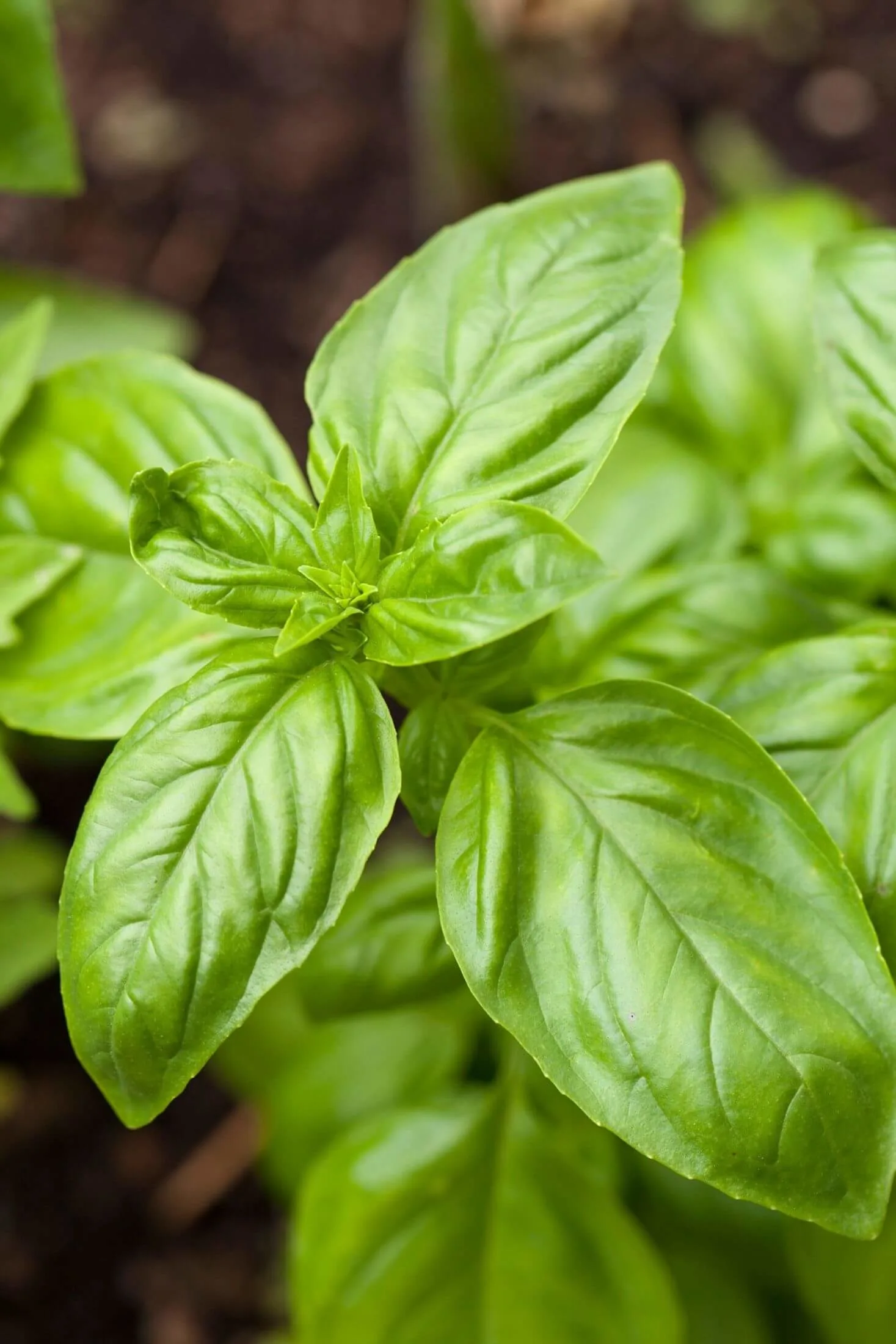
As an Amazon Associate I earn from qualifying purchases.
Jump to:
What Is Companion Planting?
Companion gardening is the practice of planting two or more plants together for the benefit of one or both plants. By planting basil with certain garden plants, you can help increase the growth and vigor of your vegetables while reducing the likelihood of pests and diseases on both the basil and the companion plant (s).
It's like a food forest, but on a smaller scale!
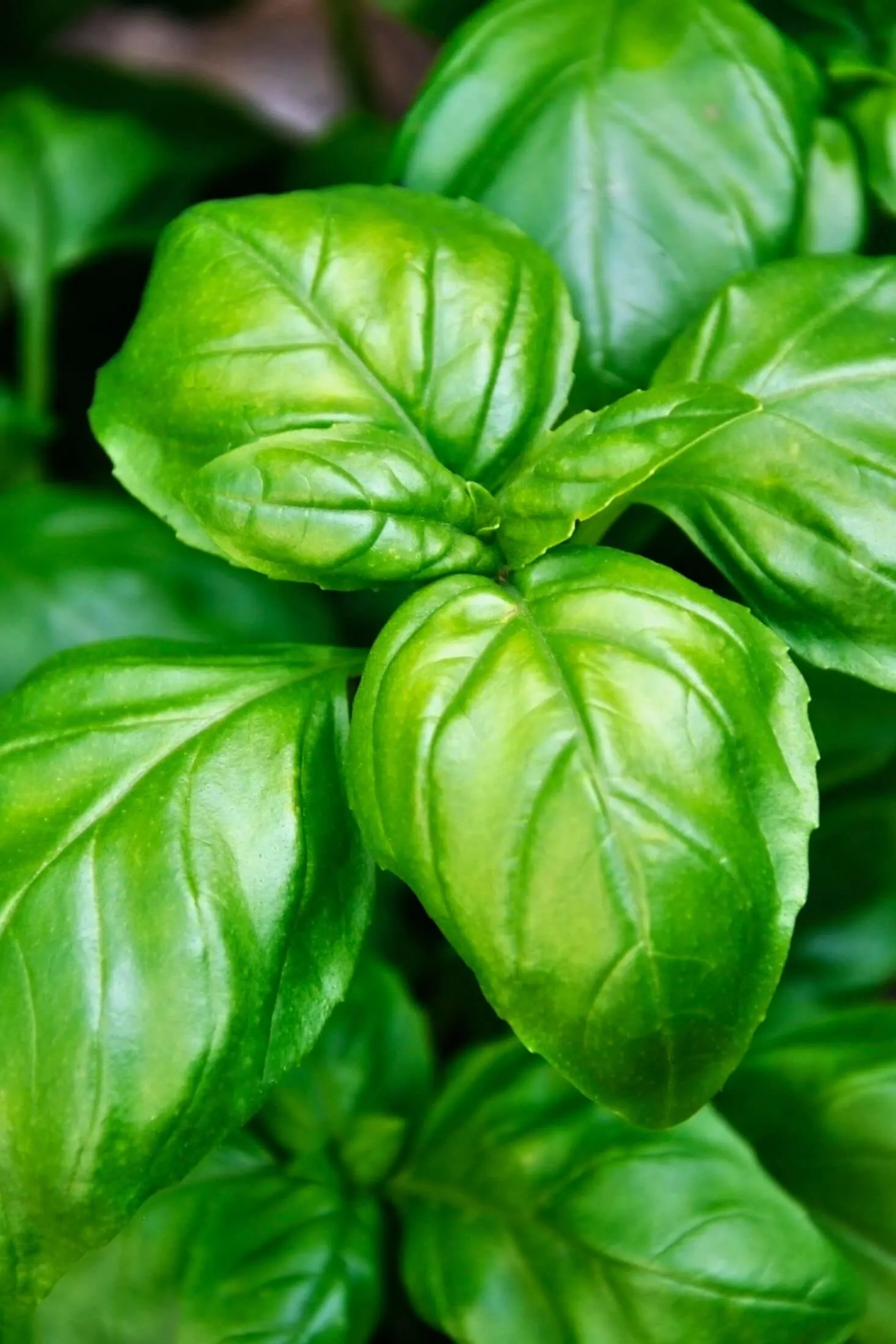
What Are The Benefits?
There are many benefits of companion planting, some specific to basil include:
- help to protect from pests and fungal diseases.
- improve growth and vigor, and in some cases, even flavor!
- help to attract beneficial insects, which will then prey on pests.
- provide optimal growing conditions, such as shade or ground cover.
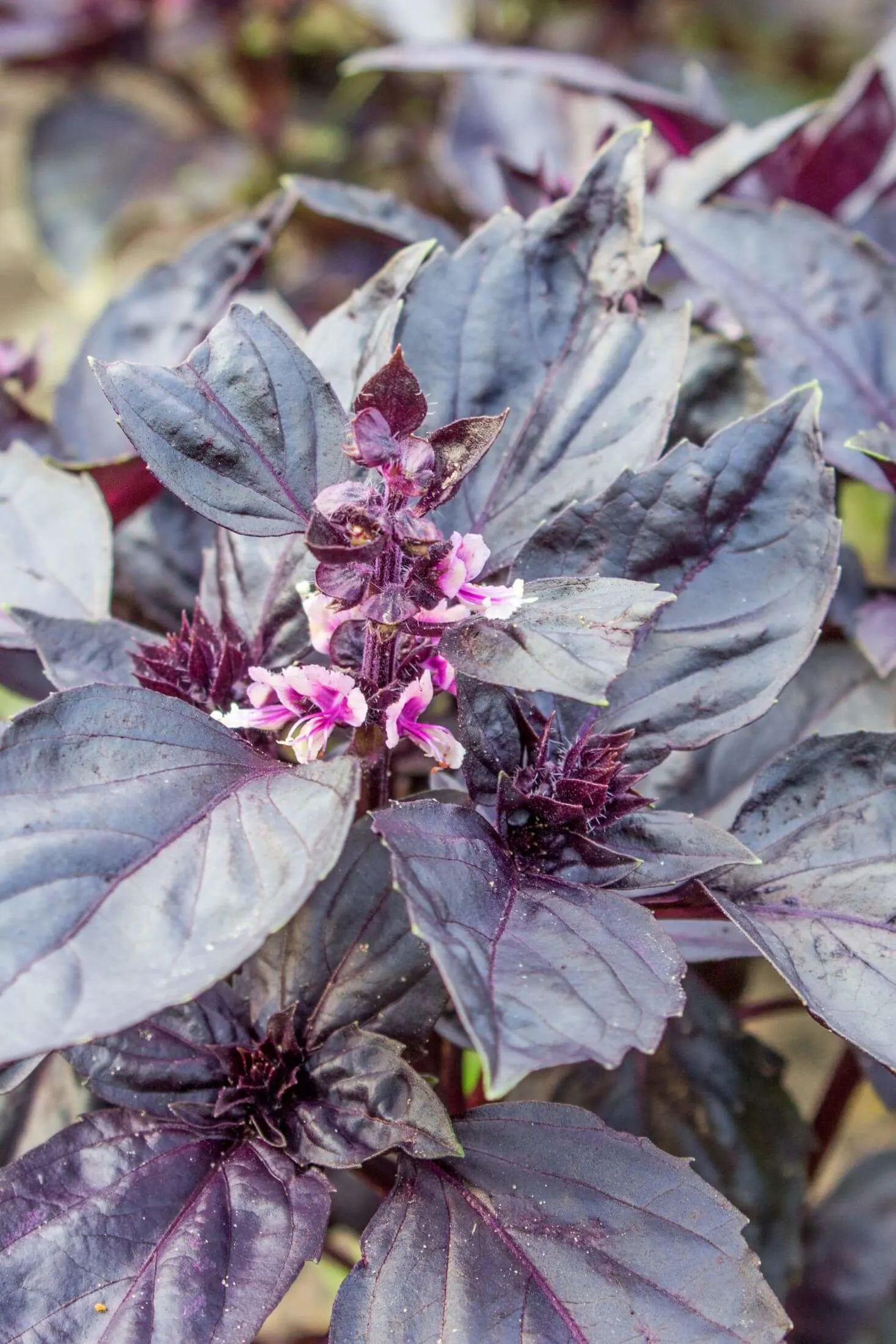
Best Basil Companion Plants
Asparagus:
This fragrant combo attracts beneficial insects, especially ladybugs who are fantastic garden visitors as they help to control the population of pesky aphids.
Basil helps to deter the asparagus beetle. These beetles feast on the tender growing shoots of the asparagus, and since asparagus takes years to become productive, it only makes sense to protect it from its biggest pests!
If you're really struggling with asparagus beetles, consider interplanting both sweet basil and parsley with your asparagus plants as both can increase pest control.
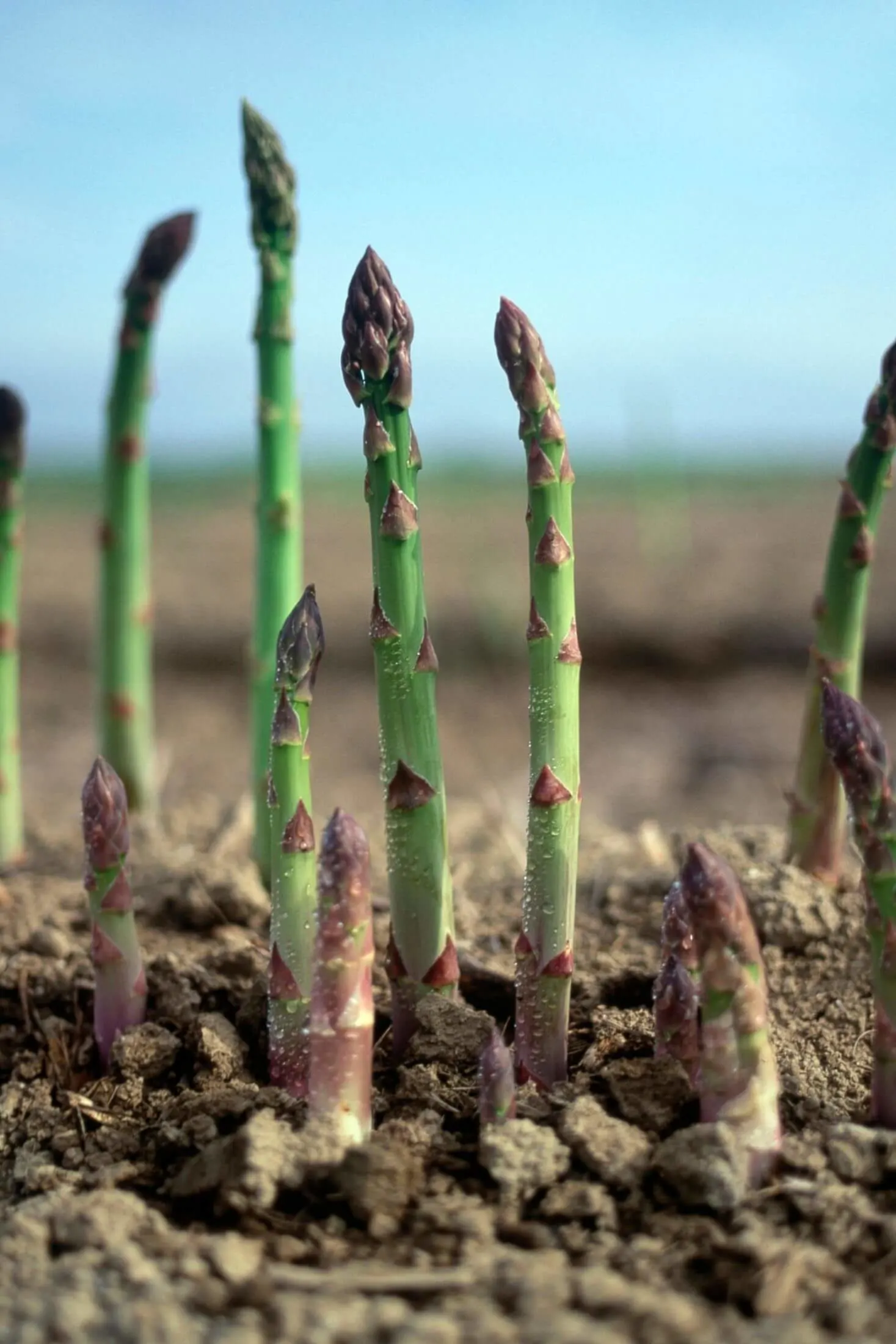
Borage:
This is a pollinator favorite and this year, on our homestead, we are stepping up the borage quota! Borage is a flowering herb with beautiful edible, blue star-shaped blossoms that taste reminiscent of cucumbers.
Borage helps to repel garden pests that like to snack on basil's other companion plants while attracting bees, butterflies, and even hummingbirds to the garden. Not only that, but borage also attracts ladybugs and parasitic wasps to help control aphids and other damaging insects.
Borage and basil have similar growing requirements and are excellent companion plants. It is believed that borage improves basil's flavor.
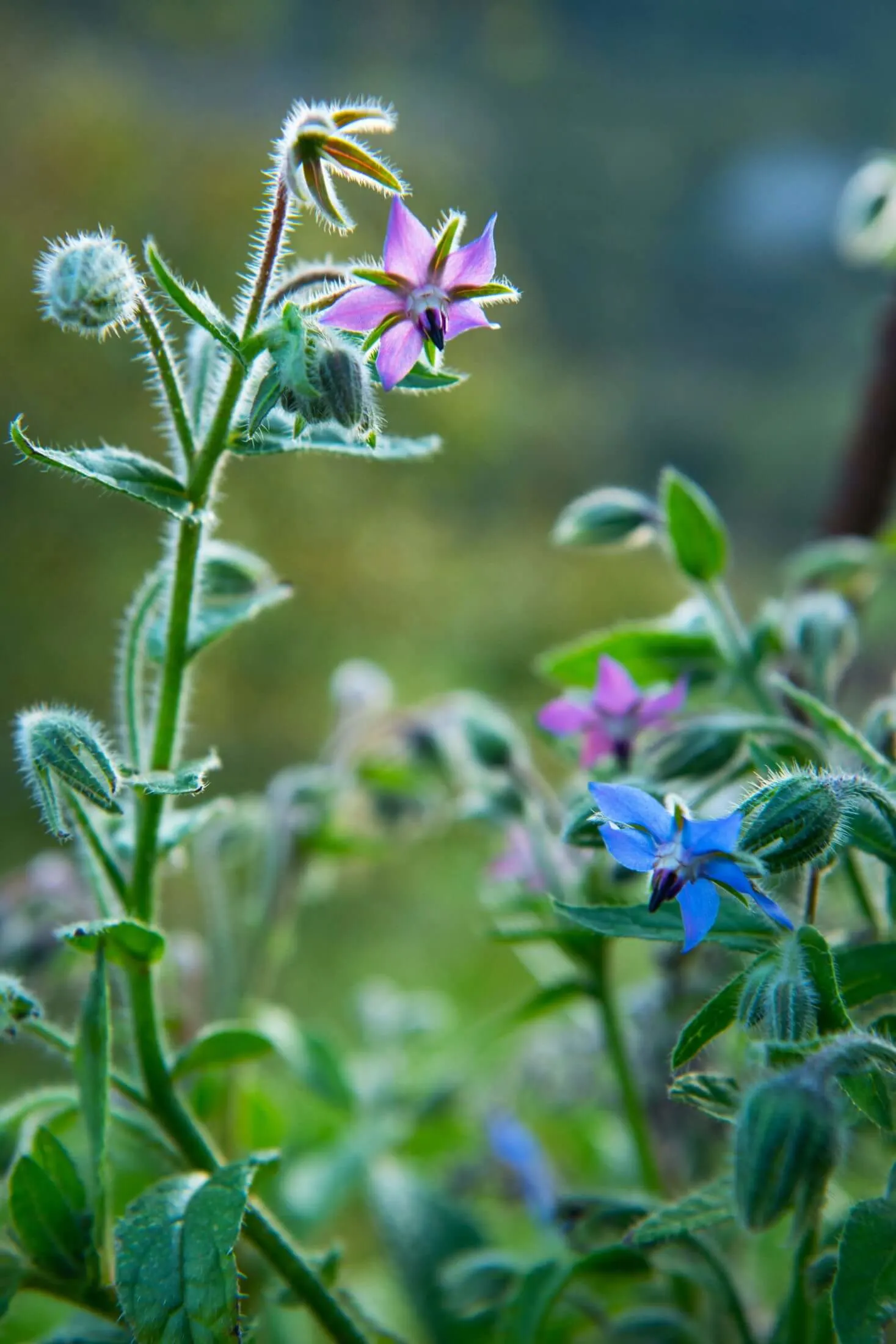
Herbs:
Chamomile, cilantro, and oregano are highly fragrant flowering herbs and make good companion plants for your herb garden, their pollinator-attracting qualities are amplified! It is said that these herbs can improve the flavor of basil.
Basil can also be safely planted with dill and parsley, but avoid planting your basil near sage and rosemary.
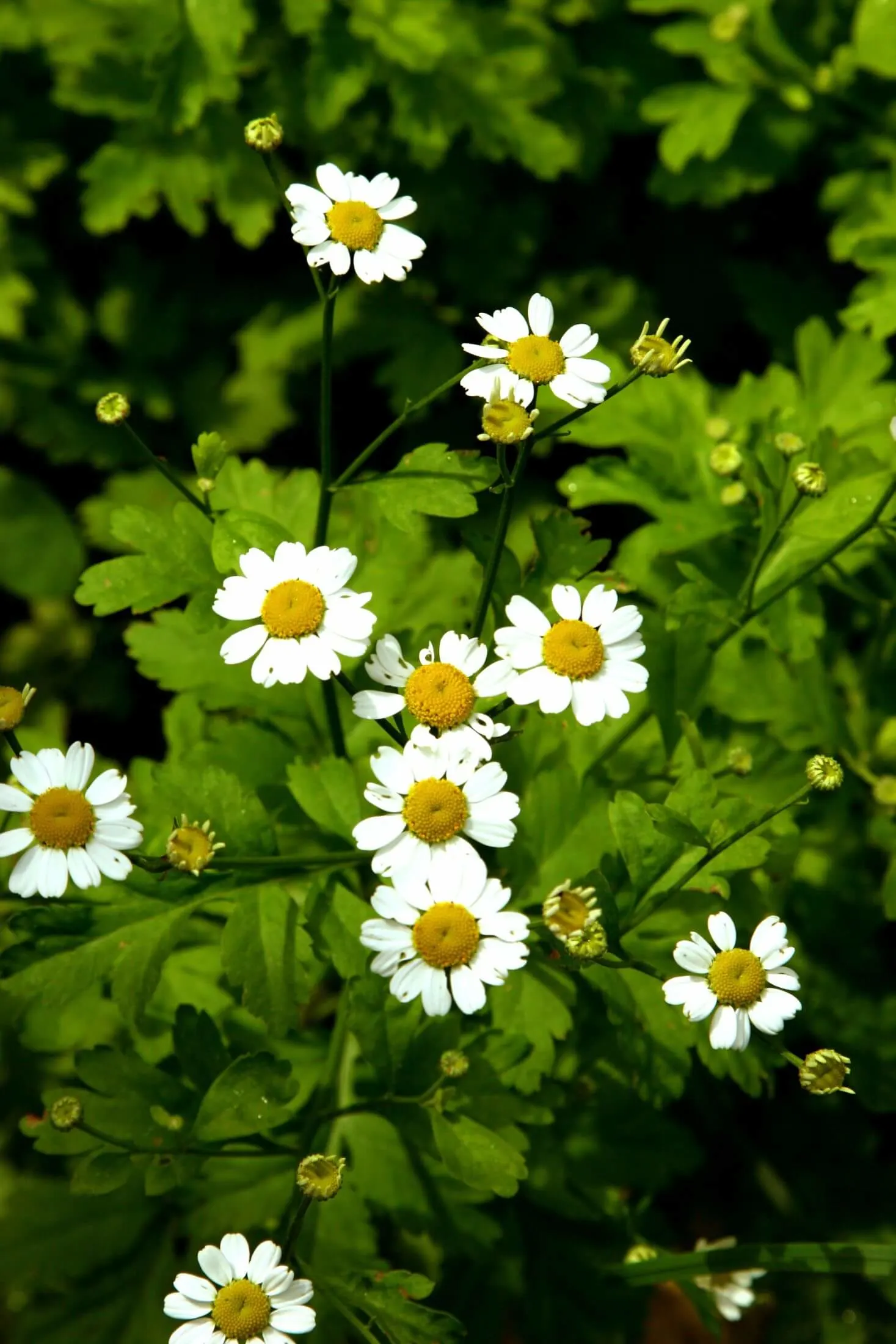
Marigolds:
Both marigolds and fresh basil are rockstar tomato companion plants, so it stands to reason that they would be a dynamic duo on their own.
Marigolds help to attract tons of beneficial insects to the garden, like ladybugs and parasitic wasps to control pests like aphids, beetles, and slugs.
Marigolds also help to ward off nematodes, which can wreak havoc on your basil if they start attacking the roots.
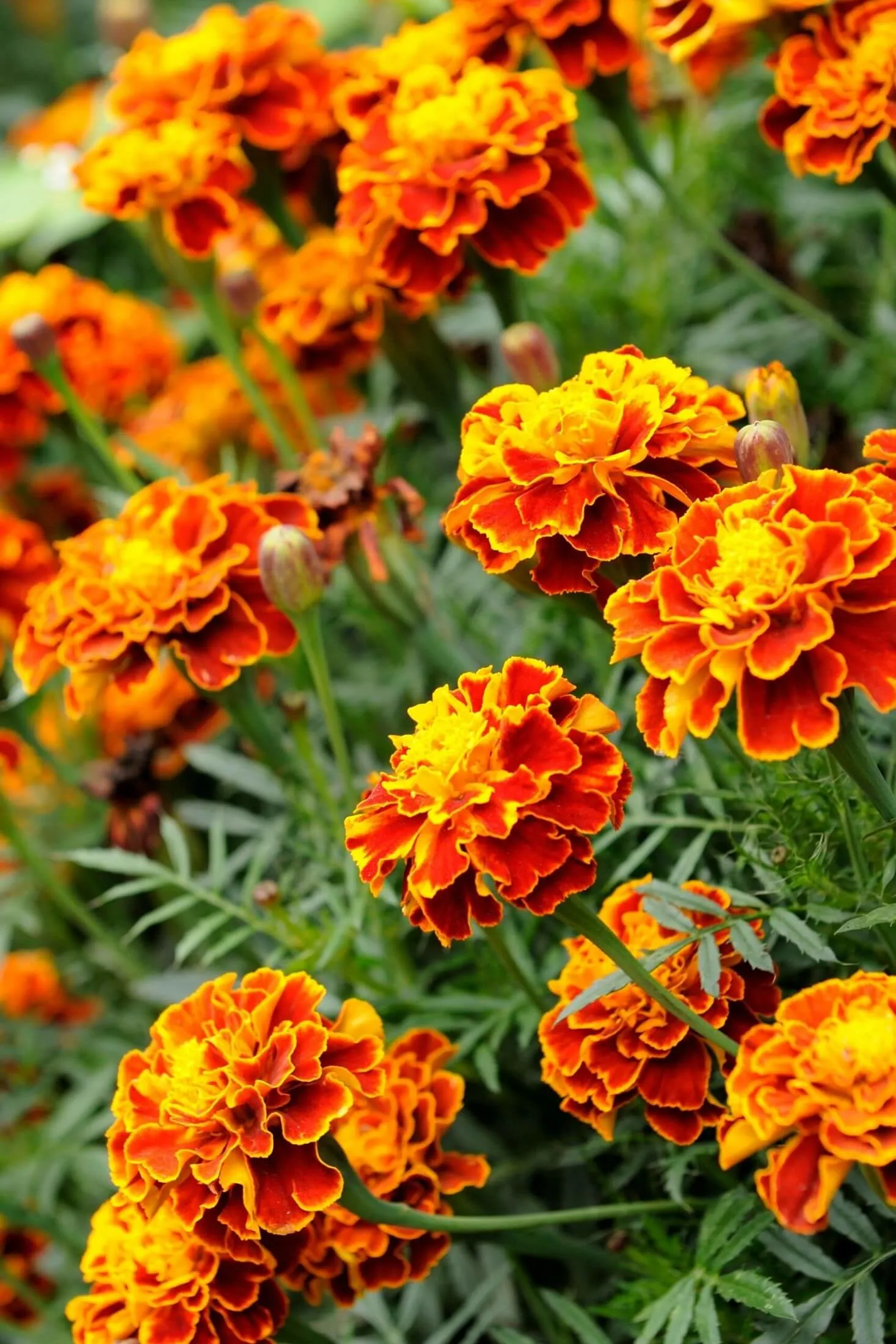
Peppers:
Basil is a great companion plant for your pepper plants and benefits them in more ways than just one!
Flowering basil attracts tons of pollinators ensuring a prolific pepper harvest. Their bushy, mounding growth habit helps to create a living mulch to prevent evaporation and trap moisture in the soil for your thirsty peppers. Basil also helps by repelling pests like flies and spider mites!
Some gardeners believe that interplanting with basil can improve the flavor of your hot sweet bell peppers.
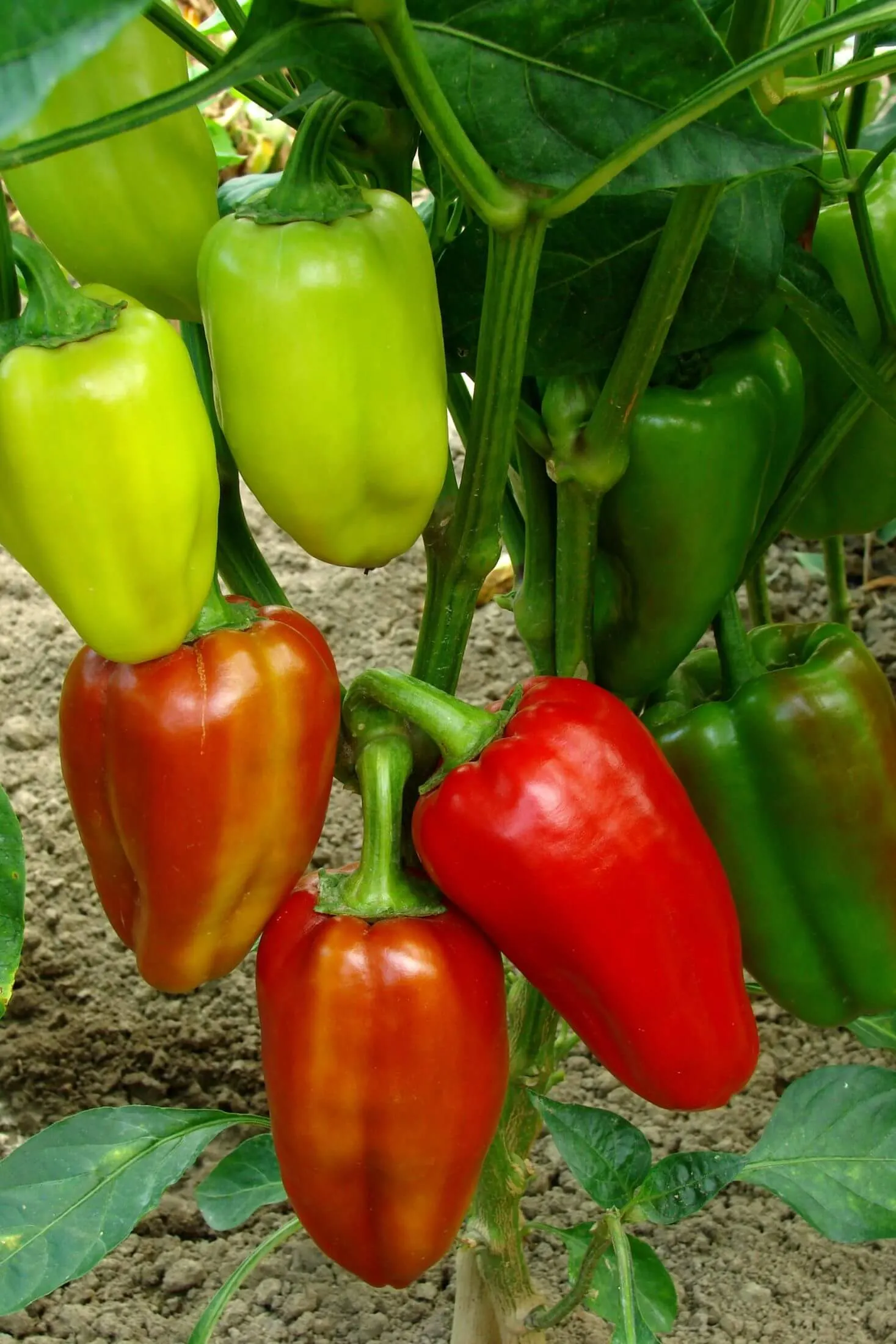
Root Vegetables:
Radishes, carrots, turnips, beets, and other root vegetables can benefit from companion planting with basil. Harness this aromatic herb to help mask or hide the fragrance of the greens in your vegetable garden from carrot flies and foraging animals.
Although not technically a root vegetable, potato plants are also thought to be improved by interplanting with basil.
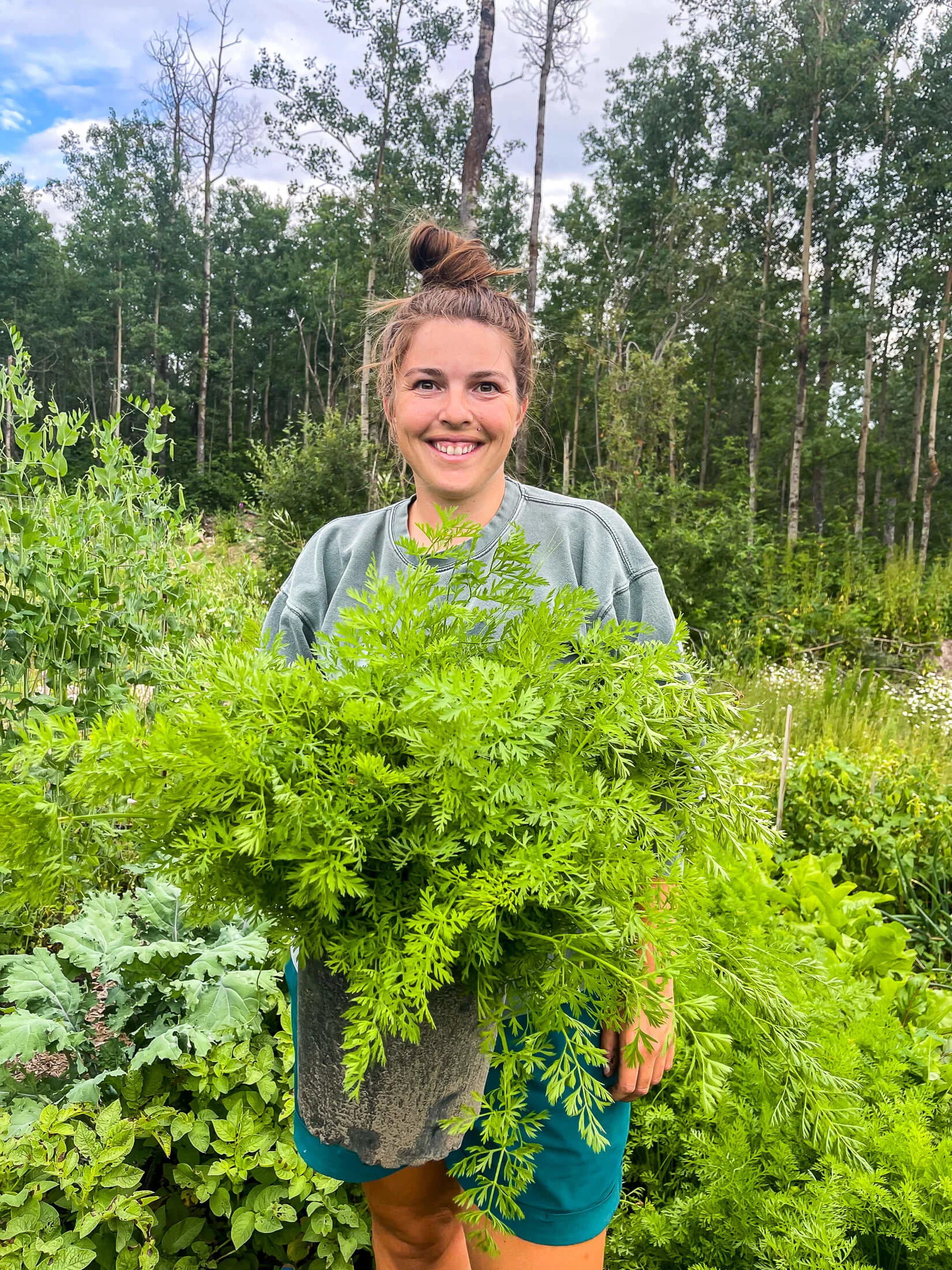
Tomatoes:
Is there a flavor combination more classic than tomatoes and basil? I think not!
This is one of those dream team combinations that are as good on the plate as they are in the garden. Both plants enjoy a lot of water and full sun. Basil can actually increase your yield of tomatoes!
Basil is excellent at repelling dreaded tomato hornworms, as well as deterring pests like thrips, and even going so far as acting as a trap crop by attracting aphids away from the tomato plants.
One caution would be to avoid planting basil too closely to the tomatoes as tomatoes are capable of growing large and choking out your herb.
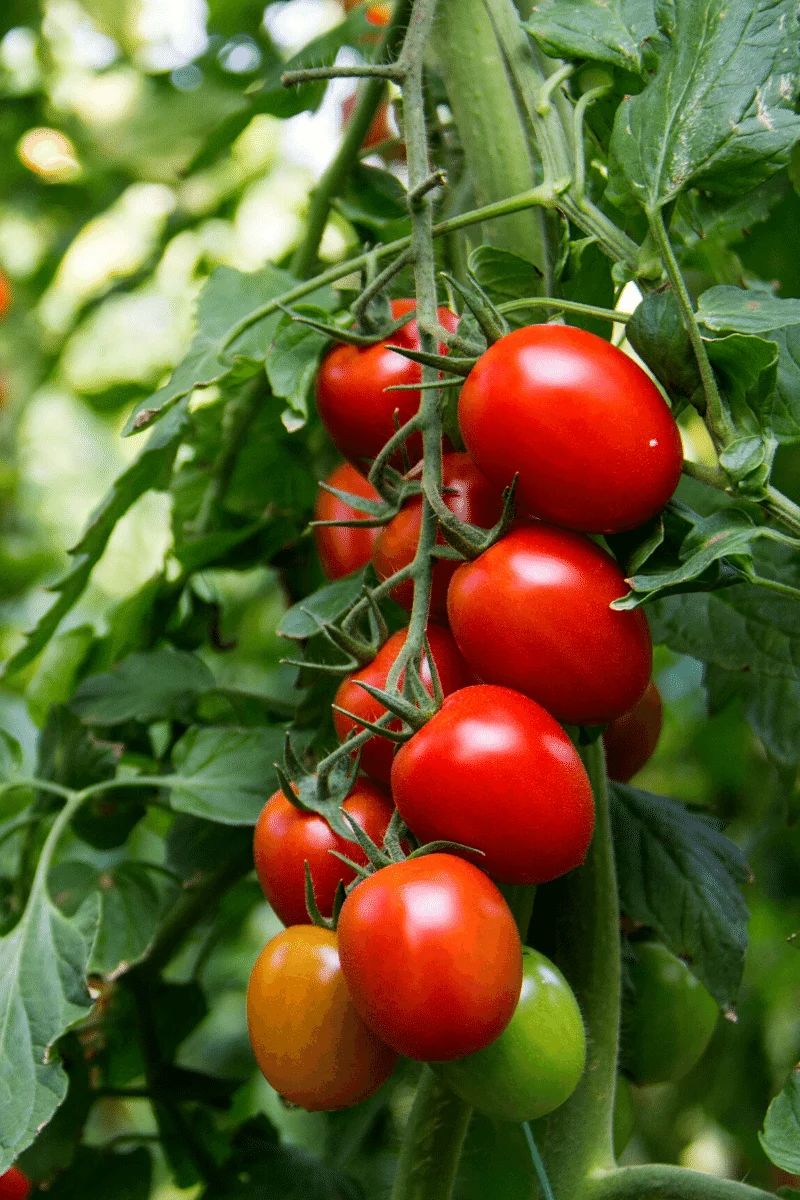
Basil Companion Plants To Avoid
Cucumbers:
Basil planted near cucumbers can negatively affect the flavors, unless you like mildly basil-flavored dill pickles! Beyond potentially unpalatable cucumbers, which is as sad as it sounds, both plants require a lot of moisture and those big cucumber vines do not like to share resources and can hog soil nutrients!
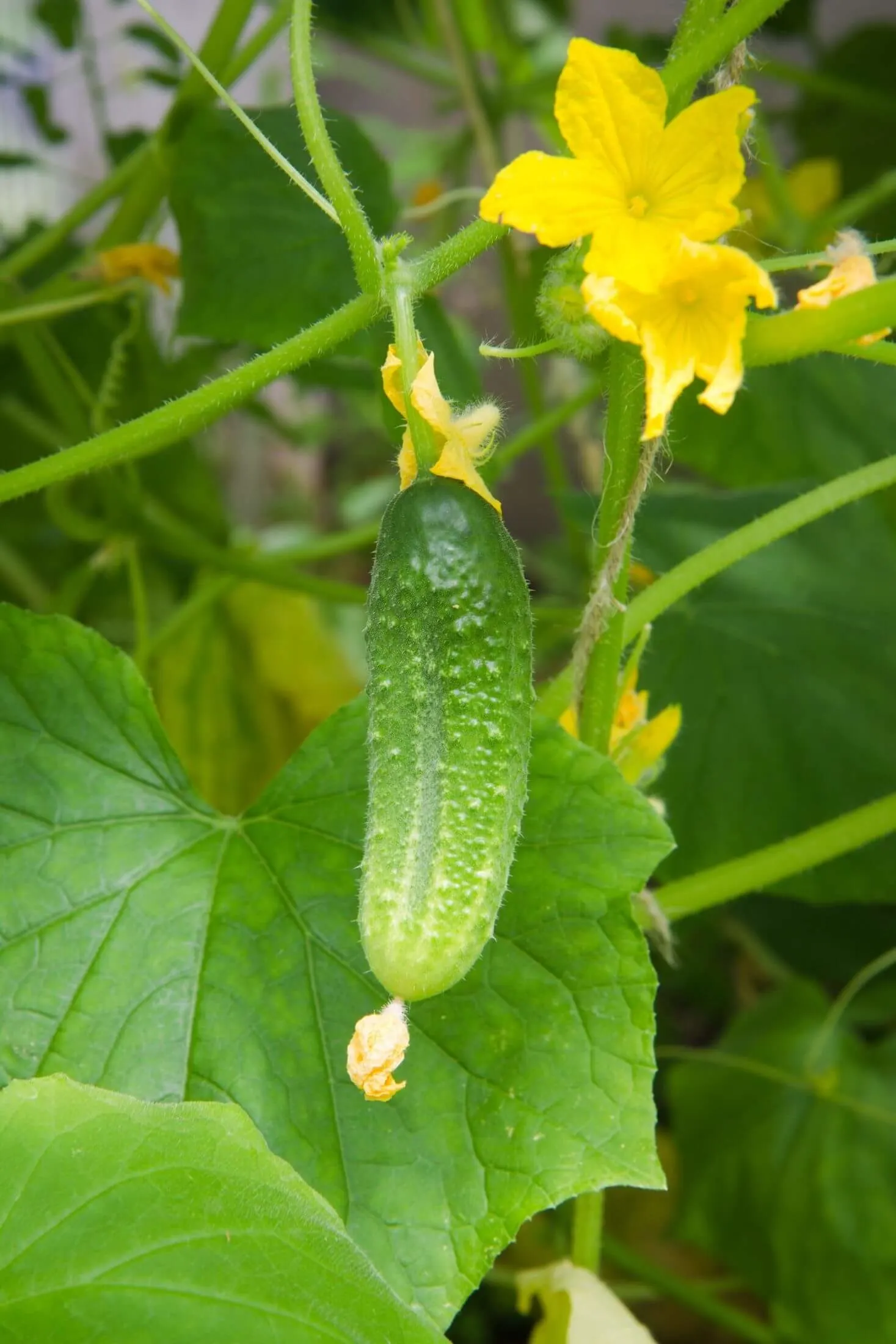
Fennel:
Fennel catches a lot of flack, but for good reason. It is probably the grumpiest garden dweller. Fennel and most other plants don't just dislike each other - they really despise one another!
Fennel is allelopathic, which means it produces a chemical in the soil that other plants, including basil, find toxic. Avoid planting basil and fennel together at all costs, as basil will suffer greatly if placed near fennel!
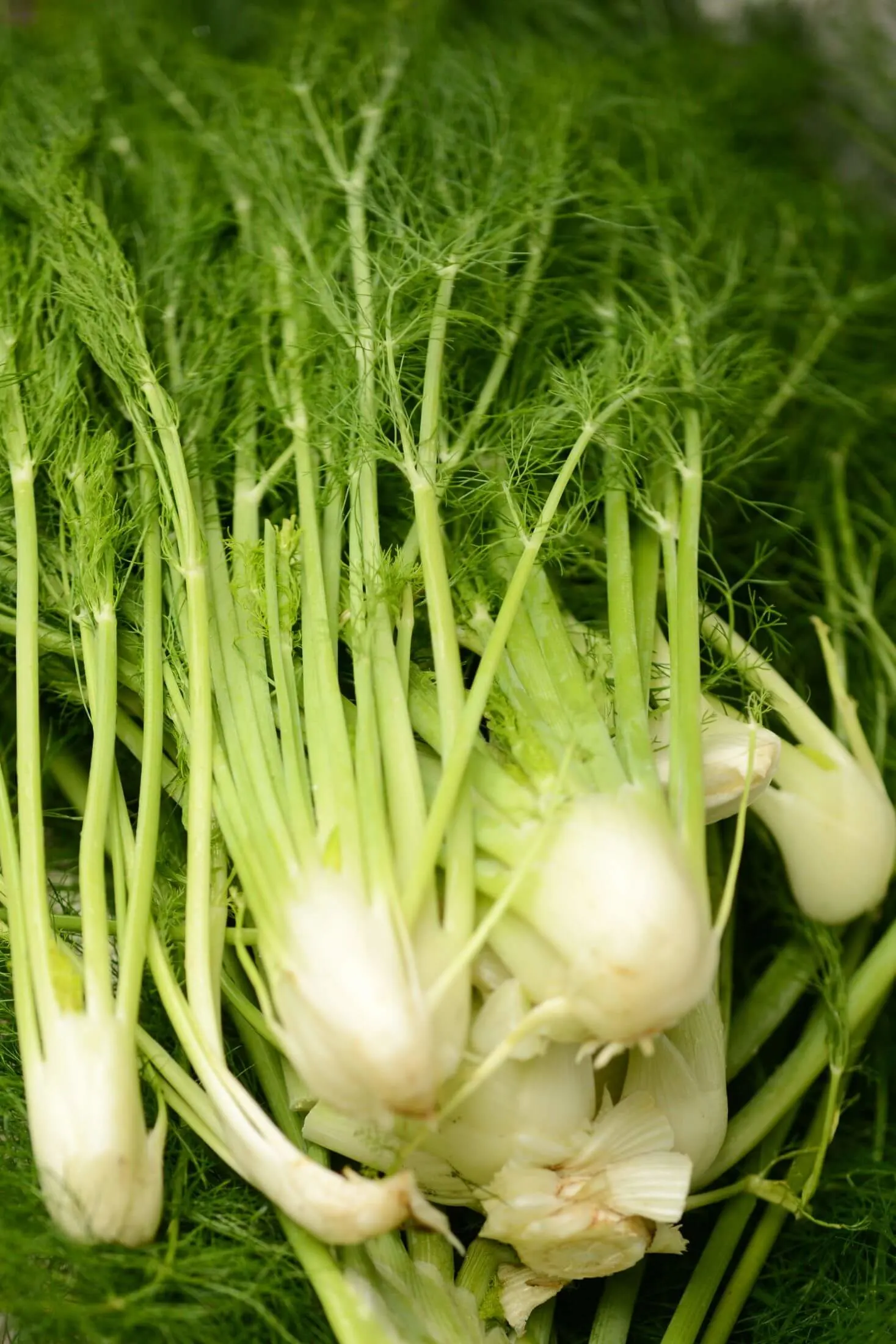
Herbs:
We've established that basil grows well with some herbs, but certainly not all!
Planting basil near herbs with similar growing requirements is usually a safe bet, but skip sage, rosemary, and common rue as these Mediterranean plants prefer dry soil and arid growing conditions.
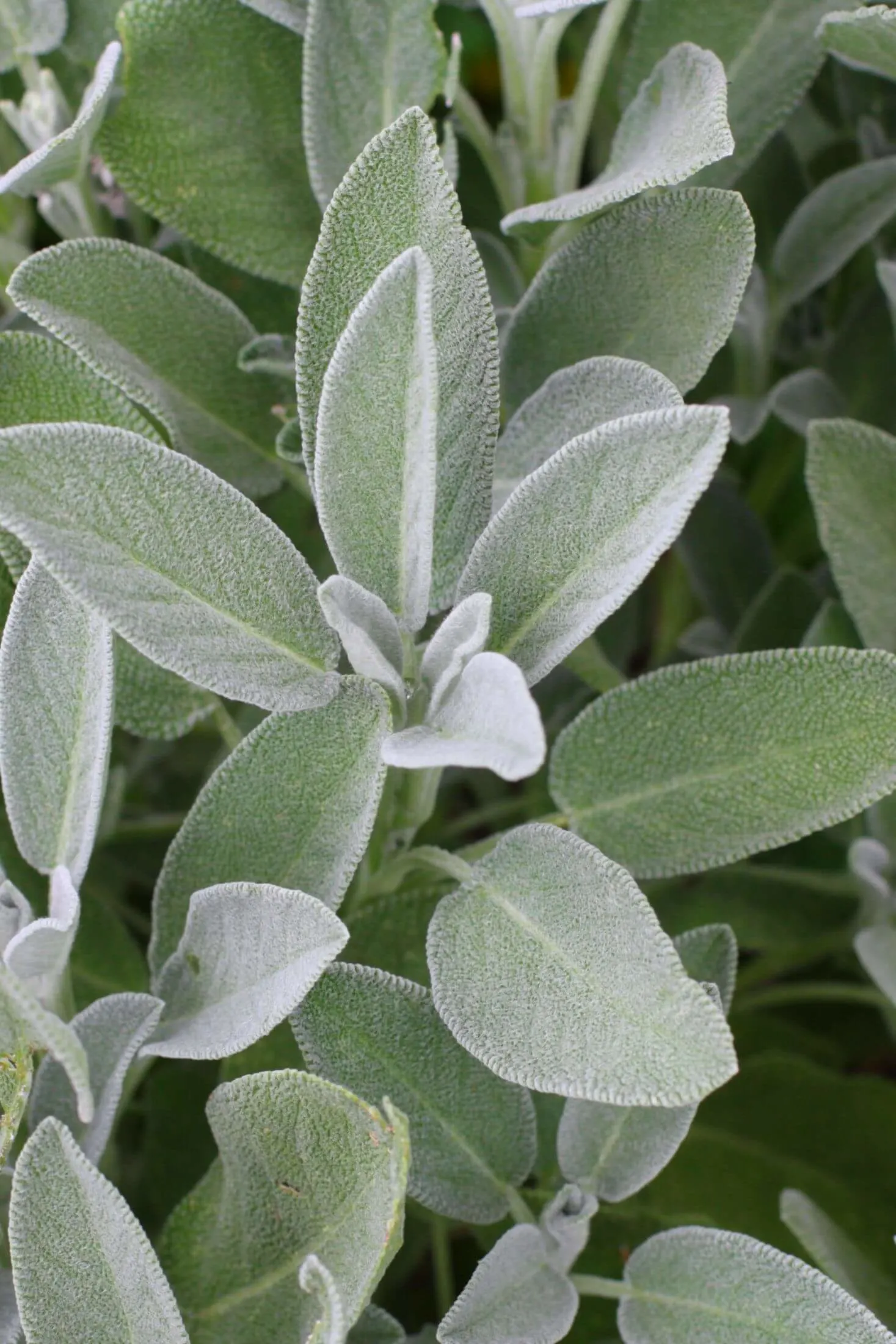
More Companion Planting Guides!
Final Thoughts
Basil is a delicious and popular garden herb that can be incredibly productive given proper care. Picking the best companion plants for your basil will help ensure it thrives!
Always consider what you are planting near your basil, as some plants can have a negative effect on its growth or flavor. When in doubt, stick with its tried and true friends like tomatoes, peppers, marigolds, and root vegetables.
Pin This Basil Companion Planting Guide!
